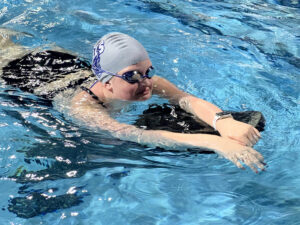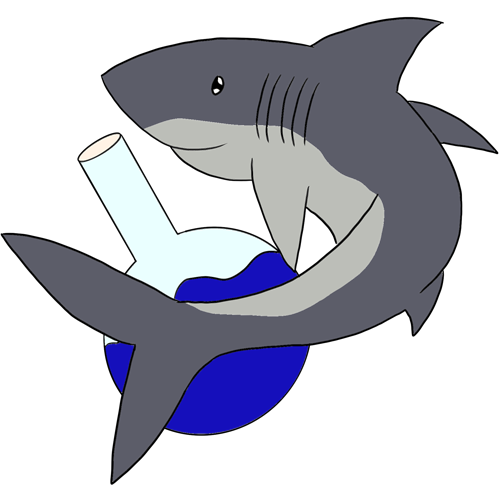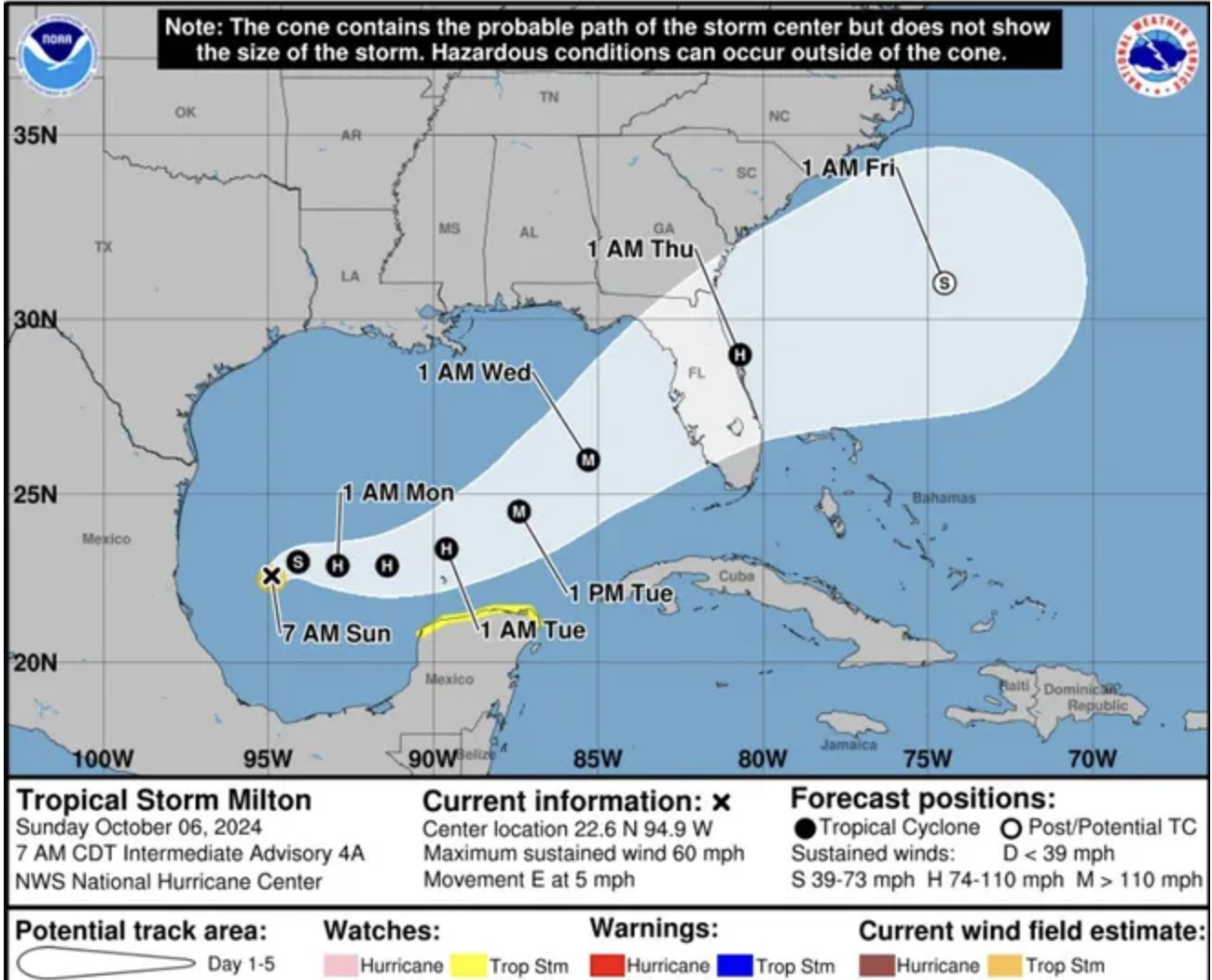The world continues to spin and change no matter what we do, so why do we as educators keep the same curriculum and strategies throughout the year? Why don’t we more regularly focus on the now, on the current (pun intended) events that make students interested and engaged in the material? My goal as an educator, especially one that centers on marine science, is to make sure the information I am teaching them is up to date and even more so relevant to the world around my students.
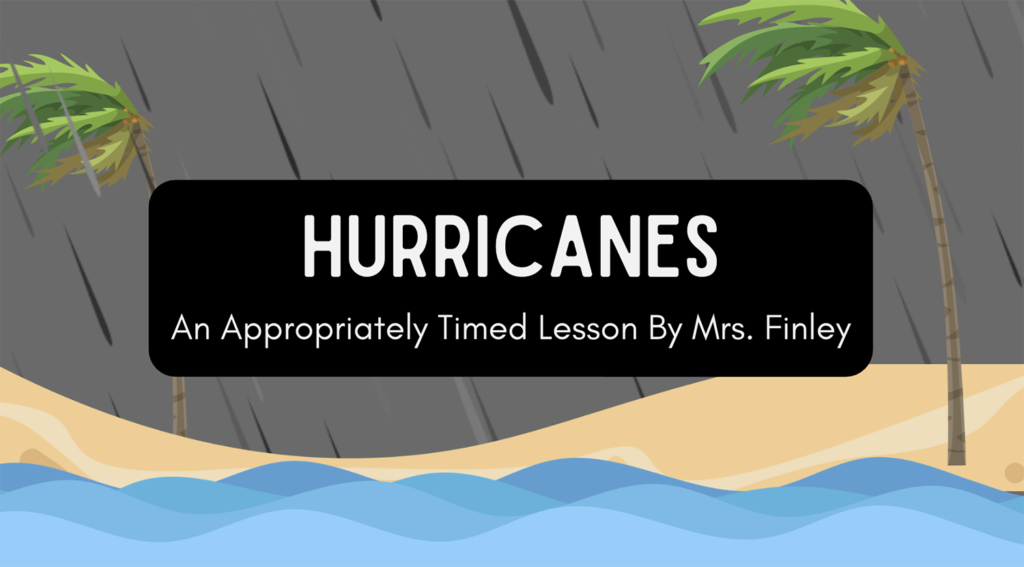
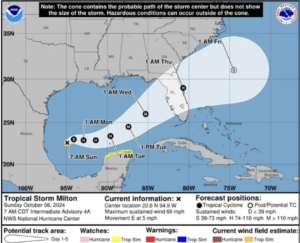
My first-year teaching marine science, we were bombarded mid first quarter with a hurricane. Instead of being upset or panicking about the time we would miss in the classroom, we learned about hurricanes. It’s one of my favorite things I do every year now, being a Florida native I’ve never NOT had a hurricane during hurricane season, teaching about hurricanes right before one impacts the area has had naturally a mixed reaction. Many students walk in and can’t believe the coincidence, like I hadn’t specifically changed all of my plans for this moment, others clock the nonchalance I give them as a perfectly schemed plan waiting to happen, and I laugh with them about it. While many of my students have lived in Florida their whole life, some have just moved here from across the country or across the globe and so they have never experienced a hurricane or even know what one is. Many people even natives used to hurricane impacts don’t know the science behind the storms or how to find real, unbiased information about the storm and how to read it. Teaching this when a storm is on the rise has time and time again gotten students engaged in the material and helps them to remember all they learn. From how they form to how to read information straight from NOAA’s hurricane tracking site, to the impacts of hurricanes on our local coastlines and how natural barriers like estuaries and mangrove forests help to keep our coasts stable and protected, it’s all-important information that when delivered in a timely way makes a lasting impression in the students.
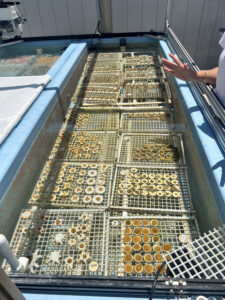
Of course, hurricanes aren’t the only topic that updates and changes over time. Our oceans are changing, discussing how those changes impact marine life need to be updated and changed to keep the information accurate and relevant. After the last two summers, discussing coral reefs and the impact of the ocean temperatures on our more local reefs has become an even bigger part of the unit. With Mote Marine Lab learning how to micro frag boulder corals and other research focusing on how coral stress impacts the reefs shows how what we know is constantly changing and developing and we must experiment and test theories to see how we can help. Discussing how the new species that are being discovered come to be, either by molecular genetics or by deep sea discovery.

Even outside of the classroom, the way to teach students about the ocean and science fits in the most outlandish ways. I helped coach the swim team this year and while I joked that is made the most sense simply because what other sport would the marine science teacher help with, I also found that my understanding of how water works and how bodies, both human and marine, work was a big help in getting our swimmers to be comfortable in and around the water and with their strokes. One way I coached the swimmers into kicking correctly was to have them imagine they were marine mammals like whales or dolphins to get them to engage their hips instead of their knees. Talking to them about how water engages with the body, how hand placement is crucial to maximizing how they move through the water. These little comparisons got students to be interested in how the world of water works, it even got them to be so thrilled with marine life they wanted them drawn on their arms and back before a swim meet as a way to remember to channel their inner shark, fish, etc. This experience shows how important it is to reach out for student interest in ways that have them reach back. Building these new experiences into lessons and activities helps to solidify that science is fluid and allows for updates in information. This is especially critical for younger people to learn and bringing the science to their interests is how to get them to care long term about the information. Consider the damage that a lack of critical thinking and science literacy did during the COVID-19 pandemic and how the world is behaving during the constant crisis of climate change. Residents of our beautiful blue planet NEED to become more scientifically literate, but to do that we need to teach the up-and-coming generations how before they become set into their ways as future citizens making largely critical decisions for the future of our world. After all, science literacy in people equates to a more well-rounded and caring world, so we should make it easy for everyone to reach out and meet us where it matters.
